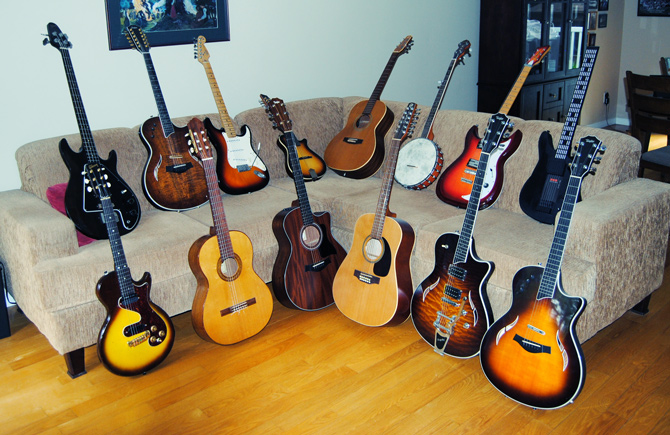When I was a boy, all the music I heard was original – Chuck Berry, Little Richard, Buddy Holly and many others wrote their own material. Others had favourite songwriters, like Otis Blackwell., who wrote a number of hits for Elvis Presley and Jerry Lee Lewis, or Jerry Leiber and Mike Stoller, who wrote hits for almost everybody. Indeed, original music has always formed the vast majority of popular music. It never occurred to me at that time that musicians would play music written by other people. Why would anyone want to do that?
In 1956, my parents bought their first television set and, like almost all of Canada, I heard the maritime fiddler Don Messer (1909-1973) on CBC’s extremely polular show, “Don Messer’s Junilee.” Messer specialized not only in other people’s music but in music from foreign countries, mainly Scotland and Ireland. It was the first time I realized that music extended beyond North America.
Later on in the 60s, I started listening to Doc Watson (1923-2012) and traditional American music became a life-long passion. I had the chance to hear Doc and his son Merle (1949-1885) in concert and the respect with which he approached traditional music was certainly the most important music lesson I ever learned. At the same time, folk music boomed and I heard Jim Kweskin’s Jug Band, who played
music from the early 20th century with objects like washboards, jugs, washtubs and combs. More and more, I was listening to music from the past.
In the early 70s, Ry Cooder became a veritable apostle for traditional music, breathing new life into songs from the depression era and the early beginnings of jazz and blues. Winner of six Grammy awards, Cooder extended his work to the music of other cultutres and collaborated with Tex-Mex accordionist Flaco Jiminez, Hawaiian musicians Gabby Pahinui and Atta Isaacs, Hindustani classical musician V.M. Bhatt, a virtuoso of the Mohan Veena, a modified 20-string guitar of Bhatt’s own invention, and Ali Farka Touré a Malian singer and multi-instrumentalist and one of Africa’s most internationally renowned musicians. Cooder also played a significant role in the increased appreciation of traditional Cuban music, due to his collaboration as guitarist and producer of the Buena Vista Social Club recording, which became a worldwide hit and revived the careers of some of the greatest surviving exponents of
20th century Cuban music. In my estimation, Cooder also played a very significant part in the thaw in Cuban-American relations, so much in the news today.
I have chosen to play two pieces which exemplify Ry Cooder’s ability to find forgotten music and reanimate it. The first piece, “Great Dreams From Heaven”, comes from Bahamian singer-guitarist Joseph Spence (1910-1984), the son of a pastor who played gospel and Bahamian songs, mostly recorded on his porch with the sound of his
children playing in the background. Fritz Richmond, jug player in the Jim Kweskin Jug Band, recorded one of Spence’s albums called “Happy All The Time”, an apt summary of the man and his music.
This second piece comes from Ry Cooder’s extensive work in film soundtracks. Entitled “I Always Knew You Were The One”, this piece is an unbelievably romantic waltz from the cowboy era, taken from the soundtrack of
Walter Hill’s western film, “The Long Riders.”

Ajouter un mot
You must be logged in to post a comment.